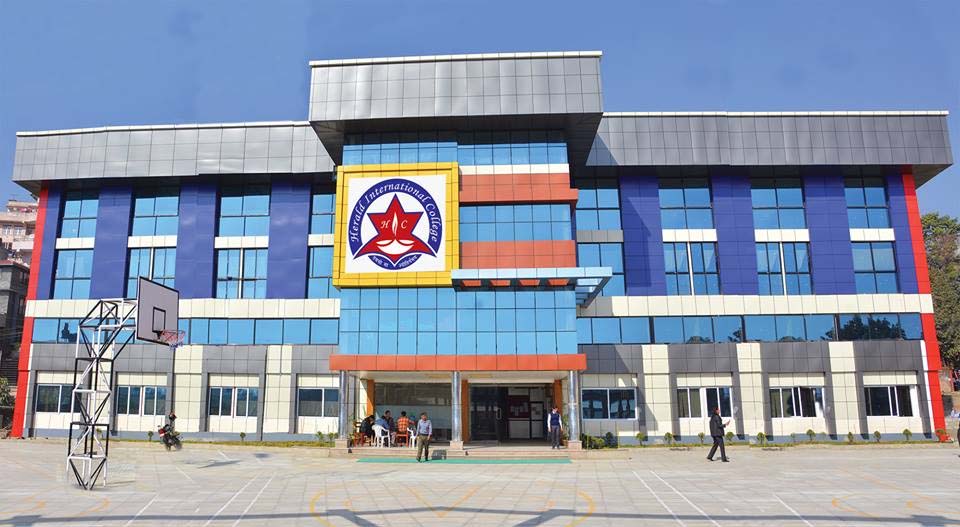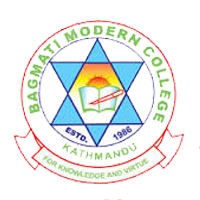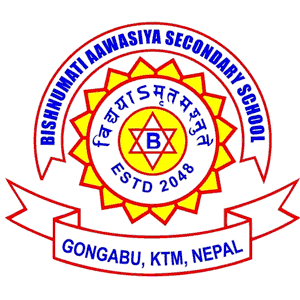Overview
Ten Plus Two (+2) Science at Herald International College, Basundhara, Kathmandu
Herald International College (HIC), Basundhara, Kathmandu, runs the National Examinations Board (NEB) Ten Plus Two (+2) Science program for students planning higher studies in medicine, engineering, agriculture, health sciences, and computer or data fields. The course follows NEB policies and CDC syllabi for Grades 11 and 12.
The +2 Science course at HIC moves through two academic years with a clear study plan, practical sessions, and internal assessment. Students study English and Nepali along with science group subjects, then sit the NEB Grade 12 board examination. Learning stays close to the national curriculum so you can move confidently into entrance tests and university admissions.

Highlights
-
Location: Basundhara, Kathmandu
-
Affiliation: National Examinations Board (NEB)
-
Duration: Two academic years (Grade 11 and Grade 12)
-
Structure: Theory classes, laboratory practicals, internal tests, terminal exams, pre-board practice
-
Facilities: Physics, Chemistry, Biology labs; computer lab; library and quiet reading zones; seminar and presentation rooms
-
Student Support: Regular class tests, review classes, progress meetings with guardians
-
Progression: Medicine, Dentistry, Pharmacy, Nursing, Engineering, Agriculture, Biotechnology, Computer/Data Science, and pure sciences
Curriculum Details
HIC follows the NEB curriculum and CDC subject outlines. Sections run as per intake size and timetable planning.
Compulsory subjects (both years)
-
English
-
Nepali
Science group subjects (as scheduled)
-
Physics
-
Chemistry
-
Biology
-
Mathematics
-
Computer Science (offered as per section planning)
Subject combinations are selected during admission counseling so your Grade 11 choices match university goals in Grade 12 and beyond.
Objectives
-
Build strong concepts in Physics, Chemistry, Biology, and Mathematics.
-
Practice laboratory methods safely and record results clearly.
-
Improve problem-solving and data interpretation for entrance tests.
-
Develop steady study habits for term exams and the final board.
Scope
Students select tracks that match future plans.
-
Biology track: MBBS, BDS, Pharmacy, Nursing, Public Health, Medical Laboratory Science, Biotechnology.
-
Mathematics track: Engineering (civil, computer, electrical, electronics), BSc CSIT, statistics, data-focused programs.
-
Mixed interest: Agriculture, Forestry, Environmental Science, Biomedical fields.
Learning Outcomes
By the end of Grade 12, students should be able to:
-
Solve multi-step numerical problems using laws, models, and unit analysis.
-
Carry out experiments with attention to safety, accuracy, and procedural steps.
-
Present findings in tables and graphs; discuss sources of error in simple terms.
-
Write short reports that explain aim, method, observation, calculation, and conclusion.
-
Manage time across subjects and handle exam papers within set durations.
Skill Development Modules
-
Lab skills: Handling apparatus, titration practice, microscopy, measurement, error checks.
-
Numerical practice: Weekly problem sets in mechanics, electricity, physical chemistry, and calculus topics.
-
Scientific writing: Abstracts, reports, and citation basics for project tasks.
-
Presentations: Short talks or posters to explain an experiment or concept.
-
Study skills: Term-wise planning, past paper practice, and revision logs.
Teaching Methodology
Teachers share topic plans in advance, run concept classes, and guide practical work through record books. Short quizzes and mid-term tests check progress before terminal exams. Pre-board papers simulate the board setting so you can reduce mistakes and manage time. Guardian interactions follow terminals for feedback and planning.
Admission Requirements
-
Eligibility: SEE or equivalent as per NEB policy for Grade 11 entry.
-
Documents: SEE grade sheet, character certificate, recent photos, and guardian identification where applicable.
-
Process: Inquiry and registration, subject counseling or placement as announced, document check, seat confirmation, and orientation.
-
Notes: Minimum grades for Science and Mathematics apply for the science stream. Subject combinations and section seats are announced each intake.
Career Opportunities
-
Health sciences: MBBS, BDS, BNS, BPharm, Public Health, Medical Lab Science.
-
Engineering and technology: BE/ME programs in civil, computer, electrical, electronics; BSc CSIT; software or network routes.
-
Science degrees: BSc Physics, Chemistry, Mathematics, Biology; Biotechnology; Environmental Science.
-
Applied areas: Data fundamentals, statistics, agricultural sciences, and allied research roles.
Scholarships and Financial Aid
HIC announces merit and need-based scholarships each academic cycle. Criteria may include SEE grades, entrance performance, and internal results after admission. Renewal depends on discipline and term performance. Students should review the current intake notice for categories, documents, and conditions.
Why Choose This Course?
-
Curricular clarity: NEB and CDC-based plan across two years.
-
Laboratory practice: Regular practical periods with records and viva.
-
Structured support: Term tests, pre-boards, and counseling that help you prepare for university pathways.
Conclusion
The +2 Science course at HIC gives students a steady path through national curricula, practical work, and regular evaluation. You study clear subject combinations, receive timely feedback, and prepare for the Grade 12 board and university selection processes. Applicants should confirm current intake dates, subject seats, and scholarship categories during registration.
FAQ
Can I take both Biology and Mathematics?
Some sections allow both. Availability depends on timetable planning during admission.
How often are practicals held?
Lab periods run weekly through the term, with practical assessment and viva before the board.
Are review classes available before the board exam?
Pre-board practice and revision blocks are scheduled each year.
Do I need prior coding knowledge?
No. Computer Science is optional where offered.
Where can I confirm official subject outlines?
Refer to the current NEB and CDC Grade 11–12 curricula and notices for the running year.



















